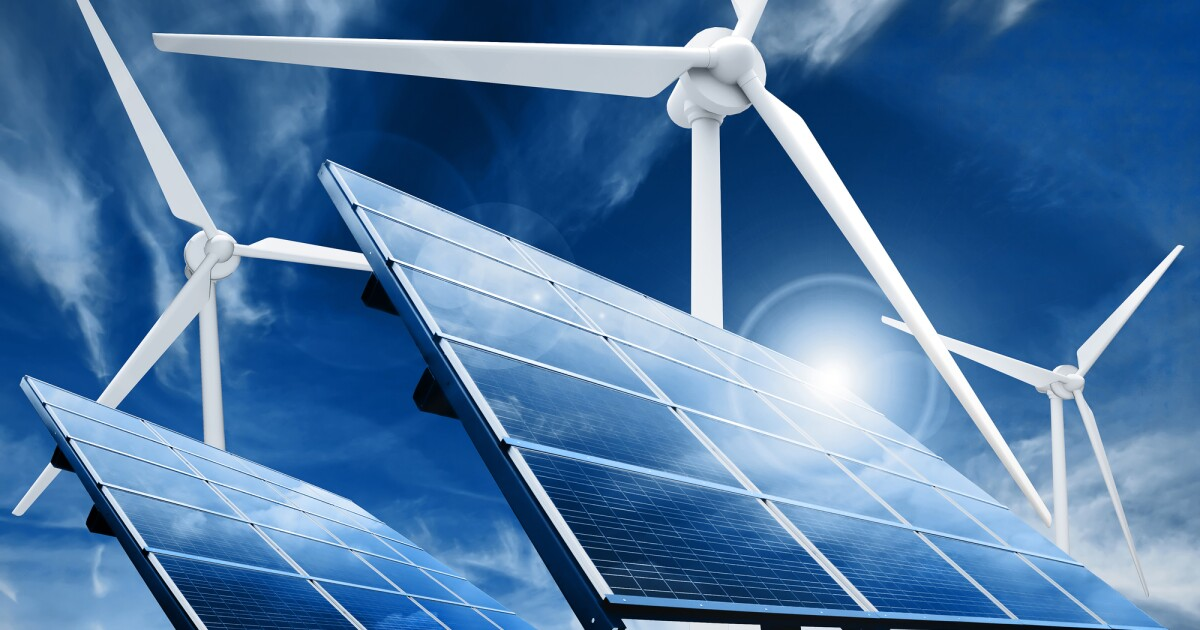Renewables surprisingly “on track” to meet net zero by 2050::undefined
The last 10% takes 90% of the effort.
Garbage reports like that do a lot of damage. Fraction of fossil in the primary energy use is nearly constant, and net zero is merely a greenwashing scam.
I work with a climate lobbying group and upwards of 95% of all new energy construction in the US is renewables. Right now the focus of the group is lobbying for energy infrastructure and lessening permitting requirements (both of which have at least some bipartisan support). If we get both of these, renewable goals are definitely reachable.
Carbon tax is still a non-starter with Republicans in general tho, and that’s what would really tip the scales.
When and how do we get offshore wind that’s worth a crap in the US? It seems so obvious to me that we have huge population centers right next to huge “wind reserves”.
Permitting requirements will help there but unfortunately that solution is tied to state governments as well, which may or may not be good news depending on where you’re talking about.
The goals of renewable should be quantitative substitution of fossil primary energy within less than 50 years.
I’d like a suit of power armor, if we’re just magicking things into existence.
Well, we don’t even have 50 years. Net energy of oil liquids is projected to peak as early as 2025. So trying to address that by trying to scale up even more volume only makes the energy cliff steeper.
We have 50 years.
That would be sure nice, but the hard numbers of the physical reality say otherwise.
If you think we do have 50 years I recommend to reexamine the data. E.g. https://escholarship.org/uc/energy_ambitions is pretty comprehensive.
Ok doomer.
Nonsense.
The core issue is grid-scale storage. Adding 10 or 30% renewables is easy and is where we currently are, getting to 100% means we need to solve that technology issue which we don’t currently have a solution to.
Nuclear + renewable is the current way to de-carbonize the grid. Build both heavily until we solve the technological issue with grid-scale storage in the coming decades.
On the timescale of 27 years, grid-scale storage is going to be a complete non-issue. There’s already a decent amount of work being done at that level right now and battery tech has been improving at a consistent pace. Renewables can work quite well as-is with a good mix of location and source. Offshore wind is more consistent wind speeds, solar locations can mitigate light cloud coverage, solar output peaks during the times of greatest human use, and land based wind is typically dispersed over large areas.
I’m a huge proponent of nuclear power, but as things stand it isn’t going to be necessary on these time tables. The value in nuclear is that it’s another thing we can build now without needing to wait ten years for battery prices to continue to decline or for manufacturing capabilities to ramp up. Building 10 GW of nameplate capacity wind+solar is great. Building 10 GW of nameplate wind+solar and 5 GW of nameplate nuclear is better! That’s the advantage of nuclear today, and we should fucking make use of it. That doesn’t make it mandatory in the long-term.
The only current storage technology cheap enough if you happen to have the nice problem of having to curtail renewable production during peak is water electrolysis – if you also happen to have the natgas storage and distribution infrastructure already in place.
MWh and GWh scale battery infrastructure isn’t cheap at all. It will likely take a decade to have affordable 10 kWh scale domestic storage, and it will be most likely sodium, not lithium. 100 kWh scale, which is almost enough for seasonal demand levelling will still take pressurized hydrogen in cylinders.
Couldn’t we pump water into dams during times of surplus and then drain the dams for hydroelectric when needed? Is that not feasible at scale?
The US (which is where I assume you are), has the second largest one in the world in current operation:
https://en.wikipedia.org/wiki/Bath_County_Pumped_Storage_StationShort answer, it scales fine.
Now you need to find someone to pay for it.The gas industry doesn’t likes this
Not everywhere has the geography to dam and use water like so. But there’s other non-lithium energy storage methods in the works.
Off the top of my head, concrete blocks, compressed air, liquid metal batteries, heat batteries, and flywheel based energy storage.
There’s more too, if you’re curious.
HVDC links between countries will also make renewable energy transmissible to places around the globe that need it, so sun shinning in one country can be transmitted to where the demand is.
deleted by creator
Agreed 100%.
Adding even 10% of renewables (minus biofuels since fake renewable) to primary energy use of major industrialized countries is by no means easy. Which is why world fossil fraction of primary energy use is nearly a constant.
Well even if we take those nonsense extrapolations seriously and had the material capacities to build that infrastructure globally (remember it isn’t a local problem), what is also lacking in many countries are skilled workers who actually put that stuff together. I can’t seem to find enough political action to fulfill that part. And it’s not only the production side, but the transport of the energy (grids and storage) and then also the consumer side. Those heat-pumps aren’t gonna install themselves, you know.






